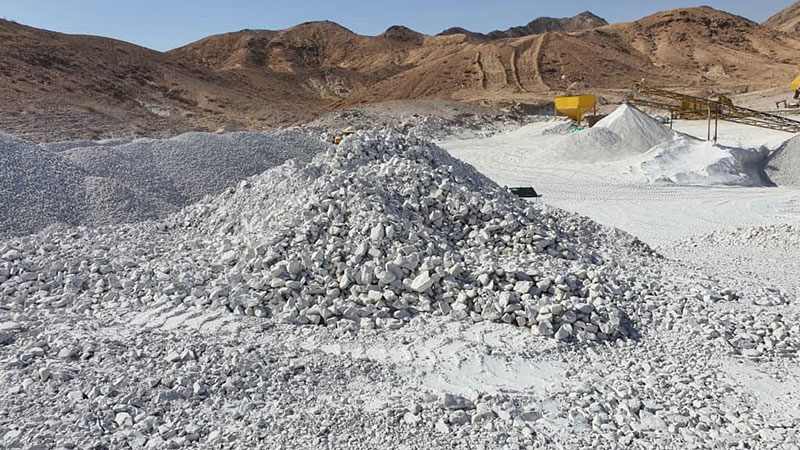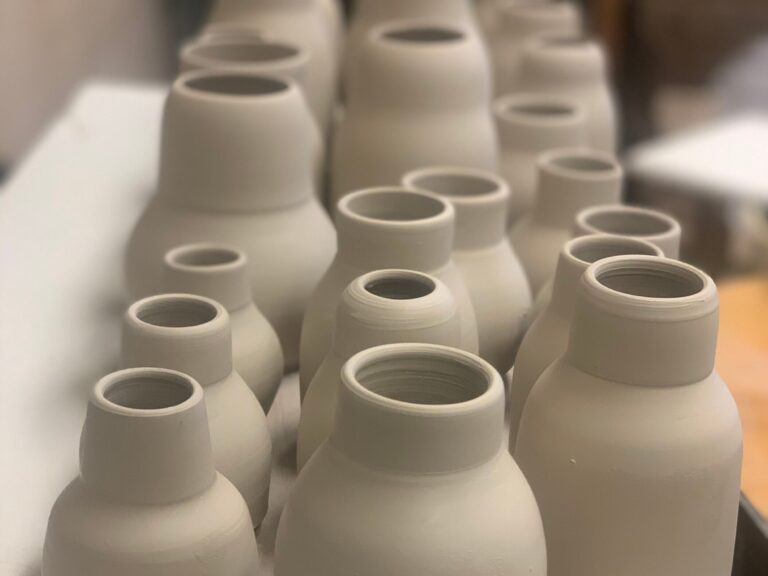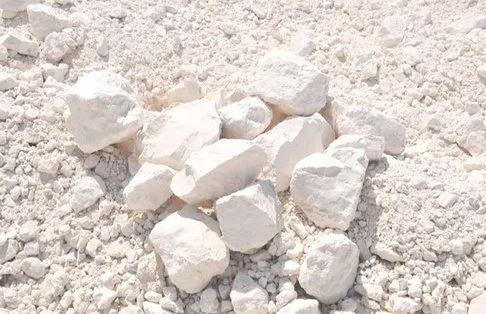The importance of quality control and assurance in the kaolin industry cannot be overstated. As the global demand for high-quality kaolin products continues to increase, it is essential for kaolin manufacturers to ensure that their products meet the required quality standards.
Quality control and assurance play a critical role in ensuring that production processes are efficient, consistent, and waste-free, while also maximizing customer satisfaction. Testing procedures and proper management of raw materials are essential for the production of quality kaolin products, and compliance with industry standards ensures continuous improvement.
When it comes to the kaolin industry, quality control and assurance play a vital role in ensuring the production of sustainable kaolin for various industrial applications. In this blog post, we will delve into the significance of maintaining rigorous quality standards and how it contributes to being a sustainable kaolin producer for industrial applications. Stay tuned for valuable insights and tips on ensuring top-notch quality in the kaolin industry.
This blog post will highlight the benefits of quality control and assurance in the kaolin industry, its relevance to the readers, and why this topic should be of interest to anyone working in the kaolin industry.
Quality Control Ensures Product Consistency And Customer Satisfaction
A Quality Control Inspector has seen first-hand the importance of product consistency and customer satisfaction delivered by Quality Control. Quality Control tests and evaluates products to ensure they meet specific specifications. This helps to avoid manufacturing defects and ensures that products are delivered consistently to customers.
Quality Control also plays an important role in ensuring customer satisfaction. It helps to identify areas where improvements can be made and enables manufacturers to make necessary changes to their products. This results in higher-quality products that meet customer expectations and are more likely to receive positive feedback.
Furthermore, Quality Control minimizes the risk of product recalls and other costly mistakes. This helps to protect the brand’s reputation and can have a significant impact on the business’s bottom line.
In addition, Quality Control helps to ensure that products are safe for use. Products that are not thoroughly tested and evaluated could pose risks to customers. With Quality Control, these risks can be identified and addressed before products are released to the market.
The Quality Control process plays a crucial role in the manufacturing process because it ensures the consistency of the product and the satisfaction of the customer. It helps to identify areas for improvement, reduces the risk of costly mistakes, and ensures that products are safe for use. Investing in Quality Control is a worthwhile endeavor that can make a significant impact on a business’s success.
Quality Assurance Helps Reduce Waste And Improve Production Efficiency In The Manufacturing Process
Quality assurance is crucial in the manufacturing process. Every step taken towards quality control helps reduce waste and improves production efficiency, which ultimately leads to more profits, happier customers, and a sustainable environment. Preventing defects before they happen is the key to success, and quality assurance does just that.
By implementing quality assurance measures, manufacturers can identify potential defects early on in the production process, which saves valuable time and prevents unnecessary expenditure. Furthermore, quality control ensures that the final product meets the standards set by the company, which in turn raises customer satisfaction rates and strengthens the brand’s reputation.
Quality assurance measures aid in identifying weaknesses in the manufacturing process allowing companies to improve their methods, ultimately optimizing production efficiency by reducing downtime, minimizing rejected products, and creating a better workflow for employees.
By reducing the production of defective products, manufacturers reduce their environmental footprint, which results in less waste, fewer resources used, and a cleaner planet overall. Implementing quality assurance processes can also lead to more consistency, which means less variability in the final product, reducing waste caused by re-work or altering.
As a result, quality assurance is an important part of manufacturing, helping industries to improve their production efficiency, reduce waste, and meet quality standards. The implementation of quality control can lead to significant cost savings and should be a top priority for all manufacturers looking to achieve long-term success.
Quality Standards In The Kaolin Industry Ensure Production Of High-Quality Products
Many sectors of the economy rely on the kaolin industry as an essential component of the production of many industrial products. The industry has set high standards of quality that are crucial in ensuring the quality of its products.
Quality standards are essential in the kaolin industry because they ensure that the products produced meet specific requirements. These standards are established and regulated by different organizations and bodies such as the International Organization for Standardization (ISO). The application of these standards ensures that the processes involved in the production of kaolin products are highly regulated and efficient.
One of the major advantages of these standards is that they lead to the production of high-quality products. This is because the standards require the use of advanced technology and equipment to measure the purity, consistency, and particle size of the products. This, in turn, guarantees that the products produced meet the expected quality standards.
Another benefit of the quality standards is that they promote environmental sustainability. They require companies to undertake environmentally friendly practices that minimize waste, pollution, and emissions. As a result, this greatly reduces the negative impact of the industry on the environment.
It is essential for the kaolin industry to maintain high-quality standards. They ensure the production of high-quality products that meet the required standards. Also, they promote environmentally friendly practices that lead to a sustainable future for all.
Testing Procedures Ensure Compliance with Quality Standards and Continuous Improvement
Testing procedures play a crucial role in ensuring that products and services meet quality standards. The benefits of testing procedures include compliance with regulations and continuous improvement in product performance.
By regularly testing products and services, companies can identify defects and quality issues before releasing them to consumers. This helps to improve customer satisfaction, reduce the number of returns, and build trust with customers. Additionally, compliance with quality standards can help companies avoid legal penalties and reputational damage.
Moreover, testing procedures can also be used to improve product performance and innovation. By identifying areas where products fall short, companies can then focus on improving these areas and releasing new and improved products. This continuous improvement cycle ensures that products remain competitive in the market and satisfy customer demands.
Furthermore, testing procedures can also help to streamline the production process and reduce costs. By identifying process inefficiencies and defects, companies can make necessary adjustments to ensure production runs smoothly and efficiently. This translates into cost savings for companies and more affordable products for consumers.
As a result, testing procedures are imperative for maintaining quality standards, enhancing continuous improvement, and reducing costs. Companies must prioritize testing procedures to remain competitive and satisfy customer demands.
Proper Management of Raw Materials Helps Maintain Product Quality and Maximize Customer Satisfaction
Ensuring consistent product quality is crucial for any business, especially in the manufacturing industry. Quality control and proper management of raw materials are two essential elements that can help maintain product quality and maximize customer satisfaction.
Quality control involves implementing a set of procedures to ensure that products meet certain standards and specifications. Proper management of raw materials, on the other hand, includes monitoring inventory levels, identifying and addressing any issues that arise, and ensuring that materials are stored and handled properly.
By implementing these two practices, businesses can prevent product defects, reduce waste and production costs, and improve customer satisfaction. They can also minimize the risk of product recalls and legal disputes that can arise from products that fail to meet industry standards.
Moreover, properly managing raw materials can also help businesses to optimize their inventory, reduce stockouts, and improve overall supply chain efficiency. This, in turn, can improve their bottom line, increase their revenue, and enhance their market reputation.
As a result, managing raw materials efficiently and controlling quality are crucial factors in any successful manufacturing company. By prioritizing these practices, businesses can improve their product quality, reduce costs, and enhance their competitive advantage in the marketplace.
Conclusion
Quality control and assurance are crucial aspects of the kaolin industry, ensuring consistency in product quality and satisfying customers. They minimize waste and improve efficiency in the manufacturing process, reducing costs and increasing productivity. Quality standards in the kaolin industry ensure that only high-quality products are produced and delivered to the customers. It is essential for the industry players to implement quality control and assurance measures to stay competitive in the market and meet the demands of the customers. As a reader, you can benefit from understanding the importance of quality control and assurance in the kaolin industry and how it affects the products you use.
FAQ
Is Quality Control & Assurance necessary in the Kaolin Industry?
Yes, Quality Control & Assurance is necessary in the Kaolin Industry because it ensures that all products manufactured meet the required standards, specifications, and regulations. It helps to reduce waste, improve efficiency, and increase customer confidence. Quality Control & Assurance also helps to prevent product defects, customer complaints, and product recalls.
What are the benefits of Quality Control & Assurance in the Kaolin Industry?
Quality Control & Assurance in the Kaolin Industry has several benefits, including:
1. Assurance of quality: Quality Control & Assurance ensures that all products manufactured meet the required specifications and quality standards.
2. Reduced waste: Quality Control & Assurance helps to reduce waste by identifying and eliminating defects in the manufacturing process.
3. Improved efficiency: Quality Control & Assurance improves the efficiency of the manufacturing process by identifying and addressing bottlenecks and inefficiencies.
4. Increased customer confidence: Quality Control & Assurance increases customer confidence in the products manufactured by the kaolin industry by ensuring that they meet quality standards.
Do all kaolin industries follow Quality Control & Assurance?
No, not all kaolin industries follow Quality Control & Assurance. However, most reputable kaolin industries follow Quality Control & Assurance to ensure that their products meet quality standards and specifications. Companies that do not follow Quality Control & Assurance risk producing inferior products, which can damage their reputation and customer confidence.
What are the key aspects of Quality Control & Assurance in the Kaolin Industry?
The key aspects of Quality Control & Assurance in the Kaolin Industry include:
1. Raw material inspection: Inspect the raw materials to ensure that they meet the required specifications and quality standards.
2. Process control: Implementing quality control measures to monitor and control the manufacturing process.
3. Product testing: Testing the finished products to ensure that they meet the required quality standards and specifications.
4. Quality management: Implementing a quality management system to ensure that all quality control measures are consistently applied throughout the manufacturing process.
Can Quality Control & Assurance be costly for Kaolin Industry?
Yes, Quality Control & Assurance can be costly for the Kaolin Industry. However, the benefits of Quality Control & Assurance far outweigh the costs. Quality Control & Assurance helps to reduce waste, improve efficiency, increase customer confidence, and prevent product defects, customer complaints, and product recalls. These benefits translate into increased profitability in the long run.




Leave a comment